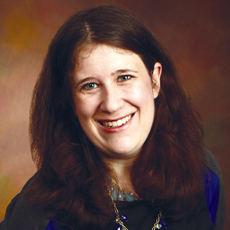
Hey, did you hear the one about the long-term care conference that was scheduled on Christmas?
Of course you didn’t, because it would never happen.
Many of you, like me, may be making plans for attending the American Health Care Association/National Center for Assisted Living conference in Washington, D.C. It starts Sunday, Oct. 5, and runs through Wednesday, Oct. 8. The American Assisted Living Nurses Association, in order to provide a lead-in to NCAL day, slated its conference on Friday, Oct. 3 and Saturday, Oct. 4.
The problem is, from the evening of Oct. 3 to evening of Oct. 4 is Yom Kippur, which is basically the biggest Jewish holiday of the year. The first evening, Brookdale Senior Living is hosting a “welcome reception” at 6 p.m., which is around the time many will be starting a 25-hour fast. The group’s keynote speaker, Sue Ann Guildermann, the director of education at Empira, is speaking at 9 a.m. Saturday on a new approach to falls in assisted living, which is roughly around the time many Jewish people will be settling in for a three-hour religious service.
Before you start posting comments or sending emails about how no group can accommodate everyone’s schedule, or how I’m being picky, stop and ask: How would you feel if a conference you wanted to attend, or wanted your staff to attend, was on Easter? Or Dec. 24 or 25?
AALNA president Calvin Groeneweg was gracious in speaking to me last week and said that the timing of the conference did not come up in scheduling, and out of 3,800 members, only one has mentioned the holiday.
“It’s hard to find dates that work for everybody,” he said, noting that October is a big conference month. “It’s just tough.”
The problem is, while there may be limited pushback from AALNA members, it’s hard to know how many Jewish assisted living nurses may have been considering going — or joining. I understand that Jewish holidays — like Easter or, for that matter, the Muslim holiday of Eid — are not on consistent dates each year. I understand that there are a lot of factors that go into where and when a conference is planned. But this smacks of bone headedness.
For managers or administrators, if you are planning an event, I’m sympathetic regarding how many Jewish holidays there are. Don’t worry, you can ignore the vast majority of these in your conference or activity planning for your facility. The majority of Jewish people don’t care if your conference is over Sukkot or Hanukah, or on something like Tu Bishvat. But Rosh Hashanah, which is the Jewish New Year, and Yom Kippur, the Day of Atonement, are big deals. In between those two holidays, known as the Days of Awe, Jewish people spend time reflecting on their lives and seeking repentance. At the end of Yom Kippur, the Book of Life is closed for another year. One can be loosely Jewish — as in, off the top of my head, not keep kosher and marry a non-Jewish person — and still show up at synagogue on those days. Even if they don’t, it’s not uncommon for those holidays, much like holidays for secular Christians, to be a time when family gets together.
Legend has it that, before I worked at McKnight’s (when I worked, natch, at a Jewish hospital), LeadingAge — a group with a fair number of Jewish not-for-profit members — found itself in a brouhaha when it scheduled its annual conference with a Jewish holiday falling in the middle. As in the case of AALNA, it wasn’t malicious, although LeadingAge, to its credit, issued an apology to members.
The bottom line: In an era when groups are presumably trying to attract members or facilities want to hire talented workers, it’s advisable to consider major religious holidays in scheduling. And if you mess up, say you’re sorry.
Elizabeth Newman is the Senior Editor at McKnight’s Long-Term Care News. Follow her @TigerELN.




